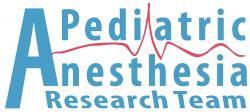-
Background
-
The goal of our project is to use smartphones and artificial intelligence to improve children’s recovery after surgery. This is needed because some children can still experience some discomfort or need pain medication for a long time after their surgery. This discomfort can affect their daily life, and might even cause them to return to the hospital. A child’s level of pain or discomfort is affected by many things, like their biological sex, anxiety, coping skills, and type of surgery. Importantly, some of these can be changed.
We will collect data to identify patterns that predict which children 1) do well after surgery, so we can learn from them or 2) do not do well or experience a higher level of pain during their recovery, so we can help sooner or even prevent it.
We will design a tool to share pain risk data with families and clinicians and test these tools in children coming to BCCH for spine, tonsil, abdominal, or dental surgery. We hope that using these tools (pain prediction models) will improve the child’s care. Identifying children at high pain risk will allow us to intervene before their surgery. This will lead to quicker recovery, less time in the hospital, and less chance of addiction to painkillers (opioids).
We will involve families and children having surgery now, to collect data for a pain risk score to help future children.
- Study
-
For this first piece, our goal is to design a simple, yet effective, tool to communicate risk information to families and clinicians. We will do so by working with a group of families and clinicians (for example, resident physicians, fellow physicians, and attending physicians, or nurse practitioners) to guide the design process. These groups will provide feedback on our design ideas repeatedly, until we have developed a user-friendly tool. The study will involve 3 focus group sessions (of 1.5 - 2 hours each). Participants can attend 1, 2, or all 3 of these sessions depending on their availability. Evaluation sessions (30 - 45 minutes) will be held for new participants who did not attend the previous groups.
During the current COVID-19 pandemic, these meetings will be conducted remotely via secure videoconferencing and online collaboration tools. Should the in-person gathering restrictions be lifted later during the study period, we will resume these sessions in-person following public health guidelines to ensure safety. If we decide to return to conduct in-person sessions, you will be given advance notice to consider your continued participation.
- FAQ
-
What does this study involve?
You will first be asked to complete short questionnaires regarding personal information (e.g., age range, ethnicity, education level) and how much you know about artificial intelligence (AI).
There will also be 3 focus groups (of 1.5–2 hours each). In the first focus group, you will provide opinions and ideas on the design and features of the AI tool. In the second, and third meetings, you will provide feedback on a mock-up of the tool to help guide the final design. You do not have to participate in all three focus groups to be part of the study. Research staff members will take notes and we will record each session, so we can check our notes against transcripts, after which they will be securely deleted.
Individual sessions (30–45 min) will be used to test the performance of the tool, not the participant. To take part in this activity, you should not have taken part in the previous focus groups. These sessions will not be recorded.
How will your identity be protected?
Your confidentiality will be respected. Information that discloses your identity will not be released without your consent, unless required by law. All documents will be identified only by code number and kept in a locked filing cabinet or secure network drives restricted to study team members. Participants will not be identified by name in any reports of the completed study. All online meetings will be password protected to maintain privacy and security.
How will study results be reported?
The main study findings will be published in academic journal articles. If you are interested in the results of the study, please provide your e-mail address and we’ll share the final report approximately 6 months after project completion.
Will I receive compensation for participating?
Family participants will receive $25 per hour for their expertise, time, and contributions to the project. This will mean up to $50 for each of the three focus groups (up to $150 if you attend all 3 sessions) or up to $25 for the final testing session. You may decline all forms of payment. Clinicians will receive tokens of appreciation ($15 coffee cards).
If in-person sessions are conducted, family participants will also be reimbursed for their parking or transit costs. Upon request, and with pre-approval by the research team, costs for childcare will also be reimbursed. No reimbursement will be provided for clinicians.
Additional questions?
For additional questions about this study, e-mail Dr. Michael D. Wood at michael.wood@bcchr.ca or Dr. Matthias Görges at mgorges@bcchr.ubc.ca.
- Participate
-
Participation in this study is voluntary and you may withdraw from the study at any time. To participate, please e-mail Dr. Michael D. Wood at michael.wood@bcchr.ca or Dr. Matthias Görges at mgorges@bcchr.ubc.ca.
